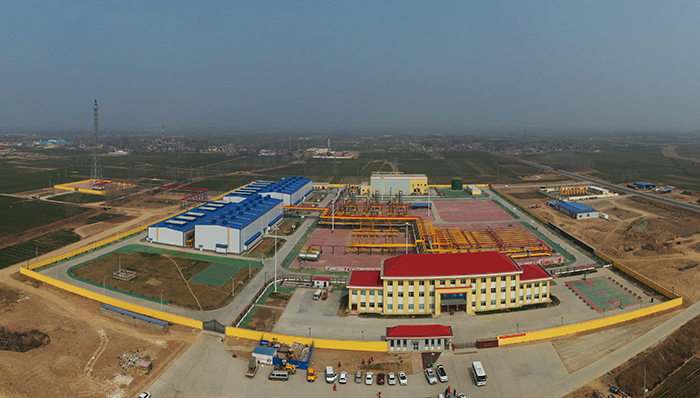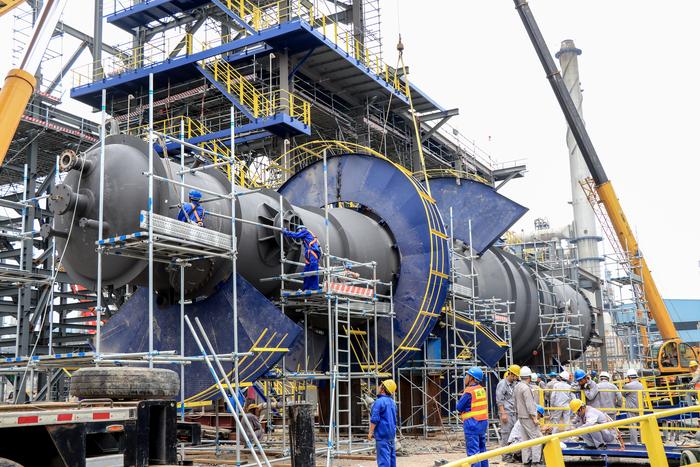|
| 2019-07-31 来源: 中国石化新闻网 |
| 石化新闻 |
中国石化新闻网讯 据今日油价7月29日报道,第三方能源研究咨询机构英国Energy Aspects分析师Virendra Chauhan周一表示,今年,全球石油需求增长无疑已放缓,但各国央行若放松货币政策,可能有助于石油需求从当前水平回升。 Chauhan表示,需求是驱动因素,因为供应方面,欧佩克的石油供应每天减少200万桶,这是十年来最大的降幅,在过去一个月里毫无进展。 尽管美国库存大量减少,中东局势持续紧张,但上周油价涨势受到了对全球经济前景持续担忧的制约。毫无疑问,石油需求已经放缓,这在很大程度上与国际贸易紧张局势有关。 Energy Aspects表示投资者和客户最大的担忧是美国的能源需求增长放缓,国际贸易紧张局势将开始影响全球石油供应链,因此低需求将持续下去。 不过,由于各国央行放松了金融环境,需求可能很快就会从目前的水平回升。这些政策将支持股票上涨,石油类股票也将随之上涨。需求放缓和美国产量增长的共同作用是中东和霍尔木兹海峡紧张局势加剧后油价没有飙升的主要原因。 本月早些时候,摩根士丹利(Morgan Stanley)全球石油策略师马丁•拉茨(Martijn Rats)表示,过去5年,石油市场发生了巨大变化,非欧佩克国家快速增长的石油产量限制了中东紧张局势加剧导致的油价上涨幅度,他表示,目前的石油市场,由于非欧佩克国家的经济增长非常快,成为了真正的游戏规则改变者,促是油价走势相对温和。 洪伟立 摘译自 今日油价 原文如下: Central Bank Action Could Rescue Oil Demand Global oil demand growth has undoubtedly slowed down this year, but loosening monetary policies from major central banks could help oil demand growth pick up from the current levels, Virendra Chauhan, oil analyst at Energy Aspects, told CNBC on Monday. The demand side is the driver, because if we look at the supply side, oil supply from OPEC is down by 2 million bpd, and that’s the steepest decline in a decade, and yet, “oil has gone nowhere” in the past month, Chauhan said. Despite the huge U.S. inventory draws and the continued unresolved tensions in the Middle East, oil price gains were constrained last week by continued concern about the health of the global economy going forward. “Demand has undoubtedly slowed down and a lot of that has to do with the China-U.S. trade war,” Chauhan told CNBC today. The number one concern from investors and clients to whom Energy Aspects speaks is that the U.S.-China trade war will start affecting global supply chains and therefore, low demand is here to stay, he added. However, demand may soon pick up from current levels thanks to loosening financial conditions by central banks. Such policies are supportive for risk markets, equities go up, and “oil kind of follows into that,” Chauhan told CNBC. The combination of slowing demand and U.S. production growth is the main reason why oil prices haven’t shot up in the wake of increasing tensions in the Middle East and in the Strait of Hormuz, he said. Earlier this month, Morgan Stanley’s global oil strategist Martijn Rats said that the oil market has changed so much over the past five years that fast-growing non-OPEC oil production limits oil price gains from a spike in tensions in the Middle East. “There is a difference in the oil market this time around because non-OPEC is simply growing so fast. That is the real game changer and that’s why the price action is relatively benign,” Rats told CNBC last week, commenting on the muted price reaction to Iran seizing a British tanker in Middle Eastern waters the previous week.
|








